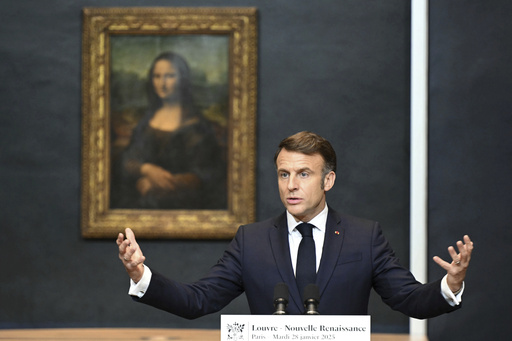European leaders are urgently meeting in Paris this Monday to discuss the future of Ukraine. UK Prime Minister Keir Starmer will join the summit, aimed at addressing the growing tensions between the US and Europe over Ukraine’s war with Russia. The summit comes during concerns that the US, under Donald Trump, may bypass European involvement in peace talks.
UK wants strong US-Europe unity
Starmer has emphasized the importance of unity, stating, “We must keep the US and Europe together.” The UK is focused on ensuring that divisions within the alliance do not weaken the response to Russia’s invasion. Starmer’s statement comes after Trump’s recent push to work with Russia on ending the war in Ukraine, raising alarms across Europe.
Trump’s new approach stirs concern
Trump’s recent discussions with both Russian President Vladimir Putin and Ukrainian President Volodymyr Zelensky have sparked fears. Ukraine might be sidelined in future peace talks. Trump’s administration is exploring ways to bring the war to an end. Including a plan that could give Russia some concessions. This shift is causing unrest in Europe, especially as it seems to marginalize their role in the peace process.
Polish minister confirms emergency summit
Poland’s Foreign Minister Radoslaw Sikorski confirmed that French President Emmanuel Macron had called for the Paris summit. However, France has not yet officially confirmed the meeting. The summit’s goal is to present a united European stance on the war, amid growing uncertainty about the US’s shifting position.
Trump’s peace plan: The role of Europe
Trump’s envoy, Keith Kellogg, assured that Ukraine would be included in peace negotiations but indicated that European countries would not be participants. This raises questions about Europe’s place in shaping the outcome of a peace agreement. Trump’s long-standing criticism of NATO, especially its reliance on European defense spending, is fueling tensions between the US and its European allies.
Europe needs to take the lead
In his statement, Starmer also highlighted that Europe must take a larger role in NATO. He stressed the urgency of securing Ukraine’s future while confronting the threat from Russia. As Europe pushes back against the US’s new direction, the need for a collective European voice in the peace process is becoming increasingly clear.
US signals shift on NATO and Ukraine
US Defense Secretary Peter Hegseth has stirred controversy by suggesting that Ukraine joining NATO or regaining its pre-2014 borders might no longer be realistic. This marks a break from Washington’s previous stance. The US is signaling its willingness to compromise on key issues, a position that has angered many European leaders who see it as giving in to Putin’s demands.
Tensions escalate between the US and Europe
Trump’s rhetoric has further deepened the divide between the US and Europe. In Munich, US Vice President JD Vance warned European leaders that their biggest threat might come from within, rather than from Russia or China. This critical tone has added to fears that the US could undermine European security in favor of more direct dealings with Russia.
Trump’s peace talks move forward
Despite the backlash, the US is pressing ahead with its peace initiative. Senior US officials are expected to meet with high-level Russian officials soon. A gathering in Saudi Arabia is planned, where discussions will begin on how to end the war. This move is a clear indication that the US aims to take control of the peace process, sidelining European leaders.
Zelensky expresses disappointment
Ukrainian President Zelensky has expressed frustration over Trump’s conversations with Putin, which he was not part of. He warned that it would be even more concerning if Trump meets Putin in person before engaging with him. Zelensky has made it clear that Ukraine will not accept any deals made without its involvement, stressing that Europe should also be part of any peace negotiations.
As the war nears its third anniversary, Zelensky is determined that Ukraine’s fate will not be decided without its input. He emphasized, “We will never accept deals made behind our backs without our involvement.” The message is clear: Ukraine’s voice must be heard in shaping the future of the war.
With Trump’s push to work directly with Russia, European leaders face a critical moment. As the emergency summit in Paris draws closer, it remains to be seen whether Europe will assert its influence on the peace process or risk being sidelined. The next few days will be crucial in determining the future of the war and Europe’s role in securing peace.




